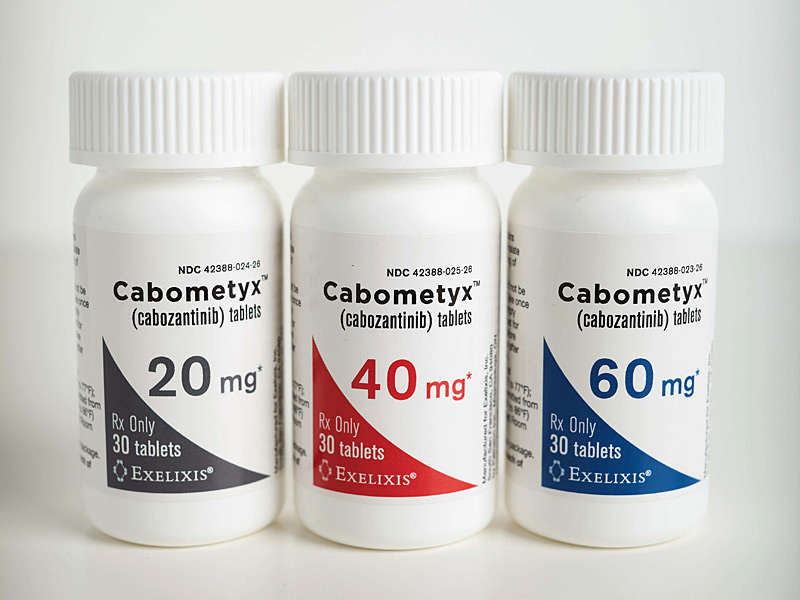Share this Page:
We are disappointed to learn that the National Institute for Health and Care Excellence (NICE) have issued draft guidance not to recommend cabozantinib (Cabometyx®) as a second-line treatment for metastatic kidney cancer, despite it’s proven effectiveness at prolonging the overall survival of previously treated kidney cancer patients compared to everolimus. In their Appraisal Consultation Document (ACD) released today, NICE have made the decision that cabozantinib is too expensive to be prescribed for NHS patients. They also had concerns over the reliability of some of the data presented by the manufacturer to the appraisal committee, and concluded that the additional benefits of cabozantinib over current treatments were highly uncertain.
This draft decision comes despite cabozantinib being designated as a ‘Promising Innovative Medicine’ by the Medicines and Healthcare products Regulatory Agency (MHRA), the UK regulator, last year. This designation indicates that a drug has potential in patients with a poor prognosis and limited treatment options, but doesn’t guarantee recommendation by NICE for use within the NHS.
However, the appraisal consultation is still ongoing, and a second NICE appraisal meeting is being held on 23rd March 2017. The Kidney Cancer Support Network (KCSN) are preparing a response to the draft guidance, and it is hoped that together with new data, or a lower price agreed with the manufacturer, Ipsen, the interim recommendation will be reversed. There is also the possibility that cabozantinib will be funded through the Cancer Drugs Fund (CDF), which became operational last year. This will be on the proviso that the manufacturer is able to prove the cost-effectiveness of cabozantinib during the 24 months that the drug will be funded by the CDF. This decision will be made at the second NICE appraisal meeting next month, after which NICE will release its final appraisal decision in June.
It is well known that a clinical response to cancer drugs is individual, and some patients respond better than others; KCSN believe that clinicians need to have a choice of drugs to be able to effectively treat kidney cancer patients. NICE’s decision leaves clinicians with a very limited choice, and is denying patients access to a new and clinically effective drug with proven long-term benefits. This decision also has a profound effect on the way England treats cancer patients, leaving people with kidney cancer at a significant disadvantage and more likely to die prematurely compared to the rest of Europe and America.
KCSN calls upon NICE to review its procedures for the appraisal of drugs for rare and less common cancers. The current appraisal system has proven time and again to be unsuitable for small patient populations, and has been shown to be unfair to different groups of patients, denying rare cancer patients access to life-prolonging treatments during the most difficult time for both them and their families.
If you have any concerns about this disappointing news, please get in touch with Rose or Julia at the KCSN.
Read more about NICE’s decision not to recommend cabozantinib for kidney cancer here.















